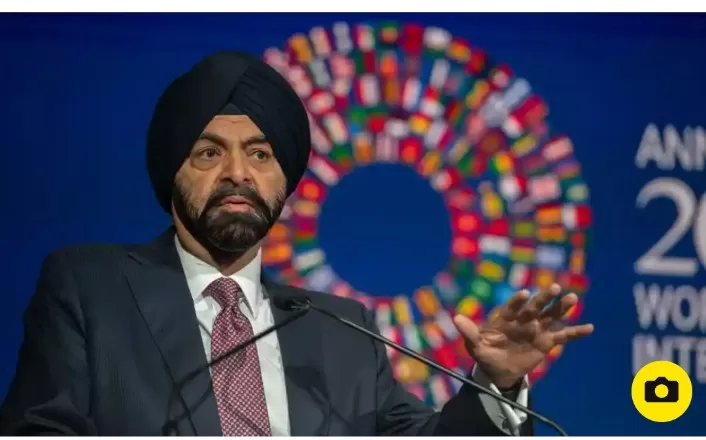During a press conference at the World Bank’s annual meeting in Marrakech, Ajay Banga, the recently appointed president of the institution, emphasized the detrimental effects of substantial debt burdens on impoverished nations. He underlined that the battle against global poverty and the pursuit of net-zero emissions goals are being hampered by these financial obstacles, especially as concerns mount over the possibility of multiple countries defaulting due to elevated interest rates.
Addressing the media, Banga acknowledged the urgency of expediting the provision of debt relief but cautioned that there was no “magic wand” to effortlessly eliminate this complex predicament.
The World Bank’s chief economist, Indermit Gill, drew attention to the fact that the recent interest rate increases by the Federal Reserve have not been as aggressive since over four decades ago, resulting in a staggering 24 countries facing bankruptcy.
In the midst of these growing financial challenges, United States Treasury Secretary Janet Yellen announced plans for a meeting with the head of China’s central bank, Pan Gongsheng. The discussions are expected to encompass potential collaboration on debt-related matters. This diplomatic outreach is significant, given the current chilly relations between Washington and Beijing. Yellen emphasized the need for increased international cooperation to address the mounting pressure on indebted nations resulting from higher global interest rates.
China has evolved into a prominent global creditor, and its support is vital for countries seeking assistance through the common framework, a debt relief mechanism initiated by the G20, comprising leading developed and developing nations, in 2020. However, this framework has been criticized for its sluggishness and limited tangible assistance.
Yellen remarked, “Though progress has been slow and certainly needs to be improved… we have seen some meaningful progress. I’m hopeful more progress can be made.”
A report from Debt Service Watch, a coalition of debt advocacy organizations, paints a bleak picture for developing countries. The report suggests that the situation is more dire than during the Latin American debt crisis of the 1980s and the two rounds of multilateral debt relief in the late 90s and mid-2000s.
According to the report, debt servicing is devouring 54% of budget revenue and 40% of public spending in Africa. Globally, 35 nations are allocating more than half of their revenue to service their debts, while 54 countries dedicate over one-third of their income to the same purpose. These figures surpass the levels faced by low-income nations before the heavily indebted poor country initiative of the 1990s and the multilateral debt relief initiative of 2005, and are slightly higher than the payments made by Latin American countries during the 1980s.
The five countries grappling with the highest debt servicing costs as a proportion of revenue are Egypt (196%), Sierra Leone (169%), The Gambia (165%), São Tomé and Príncipe (137%), and Malawi (133%). Meanwhile, Chad, Zambia, Ethiopia, and Ghana have submitted applications for debt relief through the common framework.
These debt payments are crowding out resources that could otherwise be used to address social and environmental crises. Debt service surpasses spending on education, health, social protection, and climate initiatives in African countries by 50%.
The report underscores the pressing need for a substantial round of debt cancellation for developing countries. Existing debt relief arrangements are failing to offer these nations the financial leeway to allocate more resources toward achieving the UN’s 2030 sustainable development goals, with the most recent restructuring deals forecasting that debt servicing will consume an average of 48% of revenue over the next three to five years.
Matthew Martin, the director of Development Finance International, described this situation as a “silent crisis,” where millions, if not billions, are suffering daily. Failing to address this issue could lead to increased migration and instability.
Banga, while addressing the challenges, expressed that if the common framework were to be replaced, a robust alternative plan must be devised. He added, “I wish there was a magic wand and I could say abracadabra, but I don’t think there is.”







